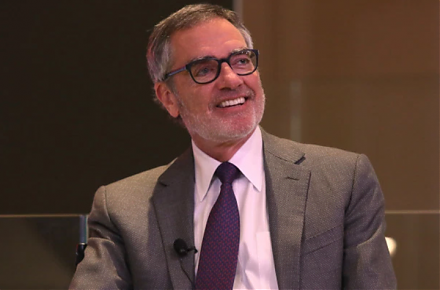

2018-05-23 09:41:00 Wed ET
stock market gold oil stock return s&p 500 asset market stabilization asset price fluctuations stocks bonds currencies commodities funds term spreads credit spreads fair value spreads asset investments
Many U.S. large public corporations spend their tax cuts on new dividend payout and share buyback but not on new job creation and R&D innovation. These public corporations channel $1 trillion onshore and offshore cash stockpiles into dividend and share buyback programs. For instance, Apple expects to spend $100 billion cash on share repurchases from mid-2018 to early-2020. Cisco spends $25 billion on share buyback, and Wells Fargo plans $22 billion share purchases. Google also expects to spend about $9 billion on dividend payout and share buyback in order to boost its near-term stock price prospects. Pepsi, AbbVie, and Amgen collectively spend $35 billion on share repurchases for better shareholder value maximization. Visa and eBay plan to initiate similar dividend and share buyback programs over the next couple of years.
Overall, these public corporations seem to view Trump tax cuts are temporary cash windfalls but not permanent cash gains. These companies initiate cash dividends and share repurchases for immediate shareholder gratification. It is thus less clear whether Trump tax cuts serve as permanent income boosts that can help revive real economic output, employment, capital investment, or R&D innovation etc.
If any of our AYA Analytica financial health memos (FHM), blog posts, ebooks, newsletters, and notifications etc, or any other form of online content curation, involves potential copyright concerns, please feel free to contact us at service@ayafintech.network so that we can remove relevant content in response to any such request within a reasonable time frame.
2019-10-17 08:35:00 Thursday ET

The European Central Bank expects to further reduce negative interest rates with new quantitative government bond purchases. The ECB commits to further cutt
2020-08-01 07:28:00 Saturday ET

Technological advances, geopolitical risks, and pandemic outbreaks cannot shake investor confidence in the American dollar as the global reserve currency.
2022-03-15 10:32:00 Tuesday ET

Capital structure theory and practice The genesis of modern capital structure theory traces back to the seminal work of Modigliani and Miller (1958
2018-11-03 11:36:00 Saturday ET

Apple adds fresh features to its new iPad Pro and MacBook Air in addition to its prior suite of iPhone XS, iPhone XS Max, and iPhone XR back in September 20
2017-11-03 06:41:00 Friday ET

Broadcom, a one-time division of Hewlett-Packard and now a semiconductor maker whose chips help power iPhone X, has announced its strategic plans to move it
2023-09-21 09:26:00 Thursday ET

Jordi Gali delves into the science of the New Keynesian monetary policy framework with economic output and inflation stabilization. Jordi Gali (2015)